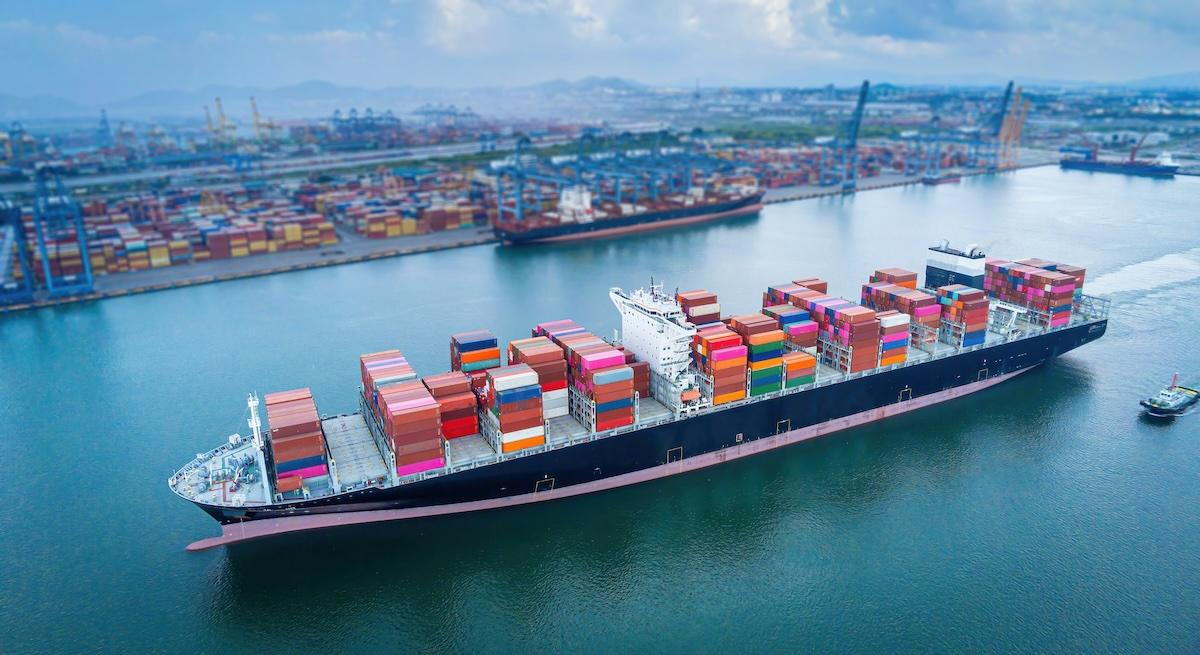Leen Kawas on Navigating Tariff Challenges: How Small Biotech Firms Can Outcompete in a Changing Global Market
How small biotech firms can outcompete in changing global market and navigate tariffs according to Leen Kawas, Managing General Partner at Propel Bio Partners.
April 11 2025, Published 1:16 p.m. ET

In today's increasingly complex global economy, small biotech companies face unique challenges when confronting international trade barriers. According to Leen Kawas, Managing General Partner at Propel Bio Partners, these emerging innovators possess distinctive advantages that can help them navigate tariff-related disruption more effectively than their larger counterparts—if they implement the right strategies.
“Small biotech firms often demonstrate remarkable agility and innovation capacity," notes Leen Kawas. "While tariffs create significant hurdles, these companies can leverage their inherent flexibility to adapt more quickly than larger pharmaceutical organizations, potentially transforming market challenges into competitive advantages."

The Disproportionate Impact of Tariffs on Small Biotech
Recent tariff implementations have created seismic shifts across the biotechnology landscape. Small biotech firms are particularly vulnerable to these changes due to their reliance on complex international supply chains for active pharmaceutical ingredients (APIs), specialized equipment, and research materials.
According to recent reports, nearly 30% of raw ingredients used in major drug manufacturing come from China, with substantial amounts also sourced from Canada, Mexico, and European Union countries. The recent implementation of tariffs ranging from 10% to 25% on imports from these regions has sent shockwaves through biotech supply chains.

Leen Kawas explains that small biotechs face distinctive challenges when confronting these tariffs: "Unlike large pharmaceutical companies with diversified global operations and substantial cash reserves, emerging biotech innovators typically operate with limited financial flexibility. When tariffs suddenly increase material costs by 10-25%, these smaller companies lack the resources to simply absorb such dramatic increases."
Recent market analysis reveals that small biotechs are "particularly vulnerable to tariffs, as they rely on imported APIs" and often lack the resources to quickly pivot their supply strategies. This vulnerability is compounded by the fact that smaller firms typically maintain leaner inventory levels and have less negotiating power with suppliers.
Competitive Advantages Small Biotechs Can Leverage
Despite these challenges, Leen Kawas identifies several key advantages that small biotech firms possess when navigating tariff-related disruptions:
1. Operational Agility and Decision-Making Speed
"Small biotechs maintain a significant edge in their ability to make rapid decisions without navigating layers of corporate bureaucracy," says Leen Kawas. "When tariff policies shift, these companies can often implement mitigation strategies within days or weeks, while larger organizations might require months to adapt."

This agility extends to operational adjustments as well. Small biotech companies can quickly modify procurement strategies, adjust research priorities, or explore alternative materials without disrupting massive existing systems. According to industry research, smaller companies can be more nimble simply because they have fewer people involved in decision-making processes.
2. Innovation-Driven Problem Solving
Research indicates that small biotechs originate a disproportionate share of breakthrough innovations in the pharmaceutical industry. A recent study published in Drug Discovery Today found that small biotechs originated 46% of first-in-class cancer drugs approved by the FDA between 2010 and 2020, while large pharma companies originated only 14%.
Leen Kawas points out that this innovation mindset translates into creative problem-solving when confronting supply chain challenges: "Companies accustomed to pushing scientific boundaries often approach tariff barriers with the same innovative thinking they apply to drug development. This frequently results in novel sourcing strategies or material substitutions that larger companies might overlook."
3. Strategic Focus and Specialization
Unlike diversified pharmaceutical giants, small biotechs typically concentrate on targeted therapeutic areas or specific technologies. "This focused approach can be advantageous when navigating supply chain disruptions," explains Leen Kawas. "Rather than managing tariff impacts across dozens of product lines, smaller firms can concentrate their resources on protecting their core assets."
In practical terms, this specialization means that small biotechs can implement more tailored supply chain solutions that precisely address their unique requirements rather than developing one-size-fits-all approaches. According to research from FREOPP, emerging pharmaceutical companies are developing new medicines with fewer resources while often charging patients less.
Strategic Approaches for Small Biotechs Navigating Tariffs
Based on her experience working with emerging biotech companies, Leen Kawas recommends several strategies that small firms can implement to navigate the current tariff environment:
1. Supply Chain Diversification
"Diversification has become essential, not optional," states Leen Kawas. "Forward-thinking biotechs are establishing supplier relationships across multiple geographic regions to reduce dependency on any single tariff-affected area."

This approach includes identifying and qualifying alternative suppliers for critical materials, establishing secondary manufacturing capabilities, and developing contingency plans for rapid supplier switching when necessary. Smaller companies can often implement these changes more quickly than larger organizations with more complex supplier networks. Industry experts note that this diversification establishes additional security against regional disruptions and contributes to a more robust supply chain.
2. Leveraging Free Trade Agreements and Foreign Trade Zones
Small biotechs can gain significant advantages by strategically utilizing existing trade agreements and special economic zones. "Many emerging biotech companies are establishing operations within Foreign Trade Zones (FTZs), which allow them to defer, reduce, or eliminate tariffs on imported materials used in their production processes," explains Leen Kawas.
These specialized zones provide small biotechs with opportunities to maintain cost competitiveness despite broader tariff implementations. According to trade specialists, companies should review supply chains to identify vulnerabilities to tariff changes and adjust sourcing strategies to minimize cost increases.
3. Strategic Partnerships and Collaborative Networks
Leen Kawas emphasizes the importance of collaborative approaches: "Strategic partnerships have become increasingly valuable in the current tariff environment. Small biotechs that establish strong relationships with contract research organizations (CROs), contract development and manufacturing organizations (CDMOs), and academic institutions can often navigate supply chain disruptions more effectively."
These partnerships enable resource sharing, risk distribution, and increased negotiating power that individual small companies might lack. According to research from PharmaVoice, the relationship between small biotech and large pharma "is very symbiotic, and it's advantageous when everyone continues to work in their own individual ecosystems."
4. Technology-Enabled Supply Chain Visibility
Advanced analytics and digital supply chain tools have become increasingly accessible to smaller organizations. "Implementing technology solutions that provide real-time visibility into supply chain vulnerabilities is no longer exclusive to large pharma," notes Leen Kawas. "Even early-stage biotechs can now adopt cloud-based platforms that identify potential tariff-related disruptions before they occur."
These technologies enable small companies to model various tariff scenarios, predict material availability issues, and develop proactive mitigation strategies. Industry analysts recommend using predictive analytics to simulate the impact of tariffs on costs, inventory, and lead times, helping businesses identify viable paths forward.
5. Reshoring and Nearshoring Critical Operations
Perhaps the most significant long-term strategy involves restructuring where critical operations take place. "We're seeing a pronounced shift toward reshoring or nearshoring among small biotechs," says Leen Kawas. "Companies are increasingly weighing the benefits of domestic or regionally-based manufacturing against the risks associated with global supply chains vulnerable to tariffs."

While this approach requires significant investment, it can provide long-term protection against future tariff implementations and supply chain disruptions. Supply chain experts note that relocating production facilities closer to end markets can consolidate control, diminish lead time, and lower risks associated with long global supply chains.
Case Studies: Small Biotechs Successfully Navigating Tariff Challenges
Leen Kawas points to several examples of emerging biotech companies that have successfully implemented these strategies:
One California-based biotech specializing in gene therapy development faced significant cost increases when tariffs were implemented on specialized research equipment from China. Rather than absorbing these costs, the company rapidly established an equipment-sharing consortium with three other regional biotechs, enabling them to jointly purchase and utilize key instruments while distributing the tariff burden.
Another example involves a Massachusetts-based company that developed proprietary software to analyze its supply chain vulnerabilities in real-time. When tariffs were announced, this technology enabled the firm to immediately identify at-risk materials and implement alternative sourcing strategies weeks before larger competitors responded.
"What these success stories demonstrate is that smaller biotechs with forward-thinking leadership can not only weather tariff-related disruptions but potentially gain market advantages through strategic adaptation," explains Leen Kawas.
The Path Forward: Long-Term Implications for Small Biotech
Looking ahead, Leen Kawas predicts that tariff pressures will drive significant structural changes in how small biotechs approach their operations and development strategies.

"We're witnessing the emergence of a new model for biotech development—one that places supply chain resilience and geographic diversification at the center of business planning rather than treating them as afterthoughts," she observes. "Companies that proactively embed these considerations into their core strategies will gain sustainable competitive advantages."
This evolution is leading to increased regional collaboration among small biotechs, with emerging innovation clusters developing shared infrastructure and supplier networks. These collaborative ecosystems strengthen collective resilience against tariff disruptions while preserving the individual agility that makes small biotechs effective.
Leen Kawas also notes that investors increasingly evaluate biotech companies based on their supply chain resilience and tariff mitigation strategies. "Sophisticated investors now recognize that a company's approach to navigating these challenges directly impacts valuation and long-term viability," she explains. "Demonstrating robust strategies for managing trade barriers has become essential for attracting capital."
Transforming Challenges into Competitive Advantages
Despite the significant challenges that tariffs present for small biotech companies, Leen Kawas remains optimistic about their ability to navigate this complex landscape successfully.
"What distinguishes successful small biotechs in this environment isn't the absence of challenges but their approach to those challenges," says Leen Kawas. "Companies that view tariffs as opportunities to reimagine their operations, rather than merely as obstacles to overcome, are discovering new sources of competitive advantage."
By leveraging their inherent agility, innovation capacity, and specialized focus, while implementing strategic supply chain diversification, technological solutions, and collaborative approaches, small biotechs can not only survive but potentially thrive amid tariff uncertainties.
"The current trade environment demands adaptation, but adaptation has always been the defining characteristic of successful biotech innovators," concludes Leen Kawas. "The same pioneering spirit that drives scientific breakthroughs can enable these companies to transform global trade challenges into springboards for organizational growth and market differentiation."
